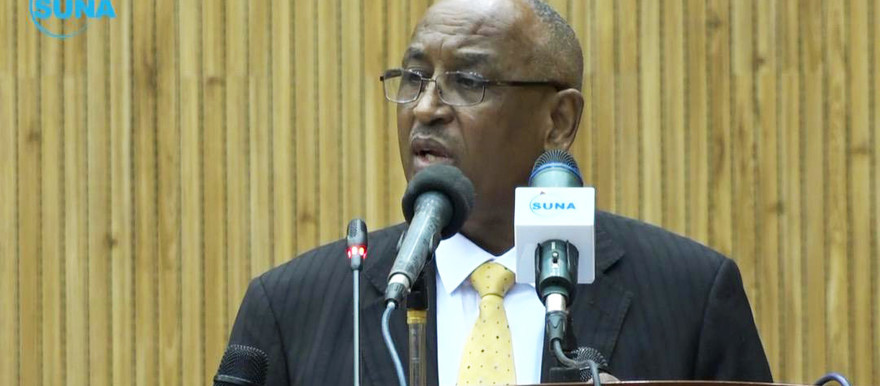
The United Nations Office of Counter-Terrorism (UNOCT) has announced that the UN-EU Counter-Terrorism Partnership for Sudan was launched today, together with Sudan and through its National Commission for Counter-Terrorism (SNCCT). The first capacity-building activity focused on countering the financing of terrorism has been held within this framework.
According to a statement by UNOCT today, the event was opened by Sayed Altyeb, Representative of Sudan’s Ministry of Foreign Affairs, who extended thanks and appreciation to UNOCT and the European Union for developing and financing this constructive programme. “There is no doubt that the noble goals that this programme seeks to achieve, are completely in the context of the efforts adopted by the Sudanese government aimed at raising awareness, building knowledge and providing support to combat terrorism, and developing strategies and programmes that transform these hopes into reality,” he added.
In a video message addressed to participants, Vladimir Voronkov, Under-Secretary-General of UNOCT stressed “the excellent cooperation we have developed with Sudan’s National Commission for Counter-Terrorism,” and that “it is only appropriate that our project’s first capacity-building workshop focuses on countering the financing of terrorism, a key priority for the international counter-terrorism agenda.”
Daniel Weiss, Deputy Head of the Delegation of the European Union to Sudan indicated that “Countering the financing of terrorism remains a high priority for the European Union as the EU’s leaders declared it last November. Thus, the EU is delighted to support this workshop under the “UN-EU Counter-Terrorism Partnership for Sudan” project, implemented by the United Nations Office of Counter-Terrorism. It’s important to highlight that this project – worth well over 1 million dollars, will also make sure that the respect for human dignity and human rights and the rule of law is intertwined in all counter-terrorism measures in Sudan.”
The opening session was also attended by senior officials from the government of Sudan, senior representatives from the United Nations Integrated Transition Assistance Mission in Sudan (UNITAMS) and the UN Country Team as well as the diplomatic community.
The workshop, held today and tomorrow in Khartoum, aims at strengthening the capacity of Sudanese authorities to counter the financing of terrorism by addressing the international countering terrorist financing framework, respect of human rights in counter-terrorism, regional risks and vulnerabilities and the importance of public-private partnerships. It is organized with the Global Programme on Countering the Financing of Terrorism in the UN Counter-Terrorism Centre (UNCCT) within UNOCT, the statement says.
This workshop is the first of a series of thematic trainings to be delivered under the UN-EU Counter-Terrorism Partnership for Sudan, an initiative funded by the European Union and aimed at strengthening the capacity of Sudan’s authorities to prevent and counter terrorism, in compliance with international human rights and humanitarian law. Within this framework, UNOCT is providing and mobilizing capacity building support to address technical assistance needs jointly identified with Sudanese authorities in areas such as legislative assistance, border security and management and upholding human rights while countering terrorism, the statement concludes.
Sudan removed from the list of State Sponsors of Terrorism (SST)
In December 2020, the USA officially announced the removal of Sudan from the list of State Sponsors of Terrorism (SST) after 30 years of sanctions.
In a recent op-ed republished by Radio Dabanga, Cameron Hudson, senior fellow at the Atlantic Council‘s Africa Centre and former chief of staff to the US special envoy to Sudan asserts: “While Sudan’s removal from the terrorism list won’t do much in the short term to alleviate the economic pain, it provides a monumental political win for the transitional government, which came into office pledging to remove Sudan from the list and remake the country’s relationship with the rest of the world. Removal from the terrorism list was the government’s ultimate prize and brings with it a precious injection of political capital that, at a minimum, will provide more time for the government to try to get its economic house in order and make good on the promise of delivering a lasting democracy dividend to Sudan’s long-suffering population.”
